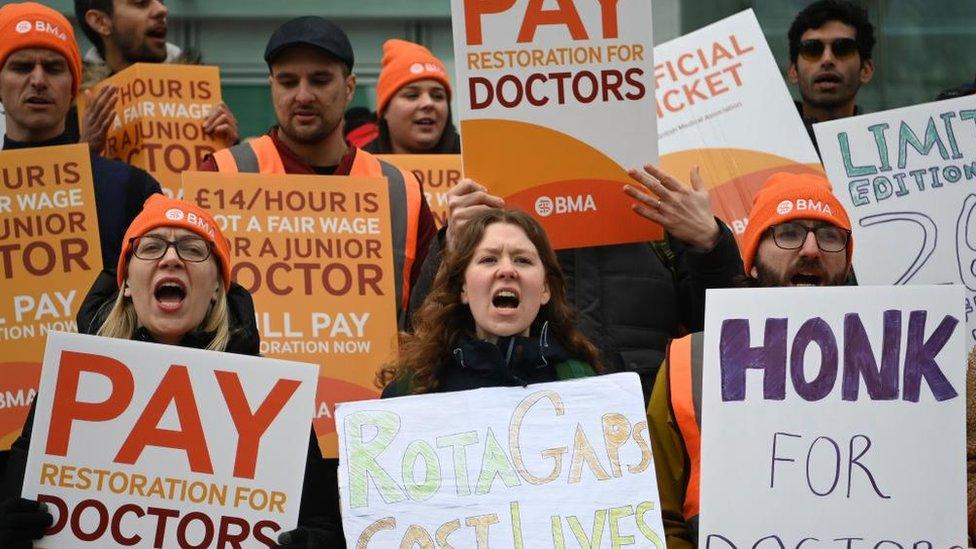Junior doctors strike: East Midlands medics join four-day walk-out
- Published
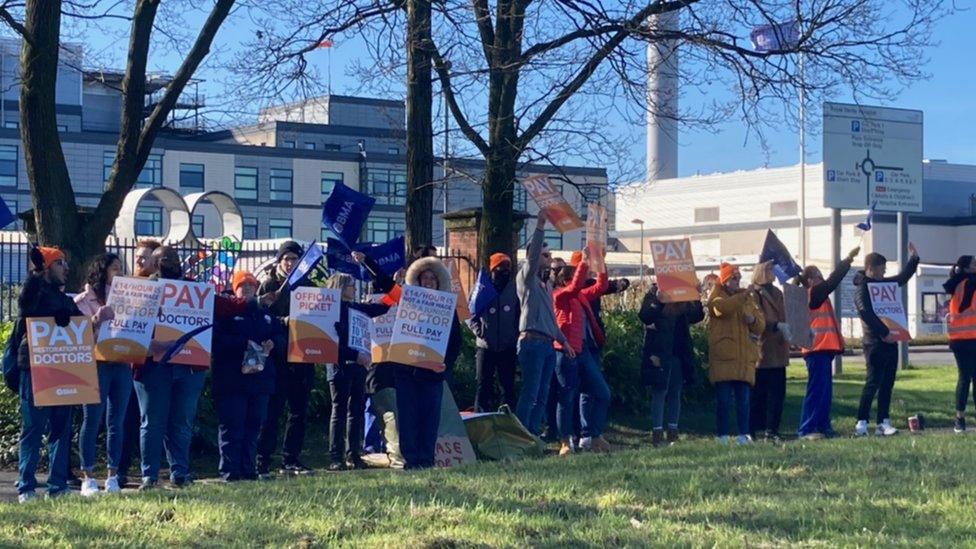
Picket lines have formed outside major hospitals in the East Midlands
Junior doctors in the East Midlands are joining colleagues from across England in a four-day walkout, expected to be the most disruptive in NHS history.
Thousands of medics, backed by the British Medical Association (BMA), are asking for a 35% pay rise.
More than 250,000 appointments and operations could be cancelled due to the action, health bosses say.
Health Secretary Steve Barclay said it was "extremely disappointing" patients were at risk.
The strike is the second by junior doctors in five weeks.
BMA bosses say they have received "no offer whatsoever" from Mr Barclay.
But the cabinet member criticised organisers for staging the strike just after Easter weekend - a period when the NHS already faces increased demand and greater staff absence - "to maximise disruption".
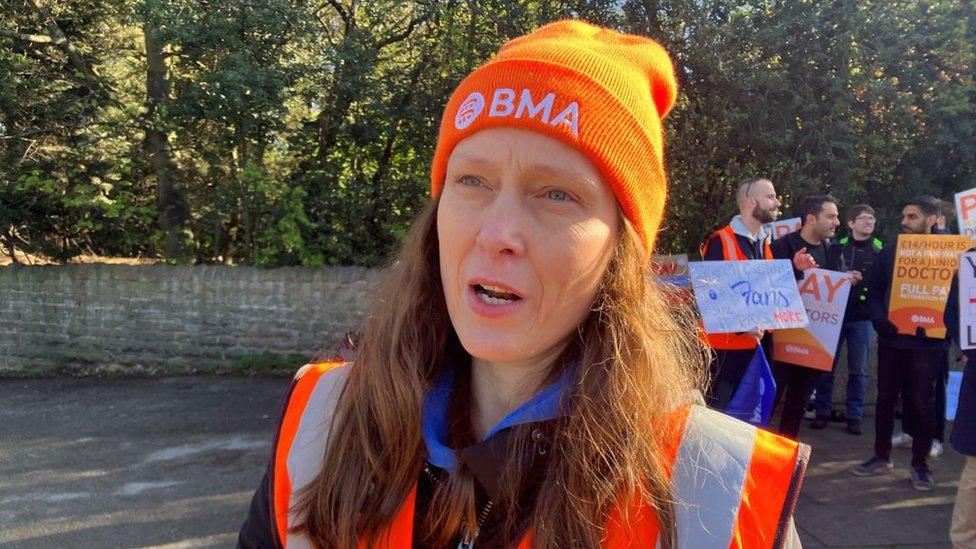
Melissa Ryan, a junior doctor in Nottingham said the 35% pay rise was not unreasonable
Picket lines have formed outside hospitals in Leicester, Nottingham and Derby.
Melissa Ryan, a year three doctor earning just over £19 an hour, said the 35% pay rise would not be "unreasonable".
The BMA's East Midlands junior doctor committee member, said: "We're here because we haven't had the opportunity to negotiate our pay.
"I'm sure people sat at home are thinking 35% is a huge number but it is reflective of how much we've lost in our pay.
"To put it into context, a first year doctor's pay would go from £14 to £19 an hour - I don't think that's unreasonable.
"A first year doctor could be there when your baby is born or when you have a heart attack. £19 an hour to me doesn't seem unreasonable."
Dr Keith Girling, medical director at Nottingham University Hospitals NHS Trust, said the city's hospitals were doing "everything they can" to ensure patient safety.
He said, despite the timing of the strike causing additional difficulties, all emergency services were still open.
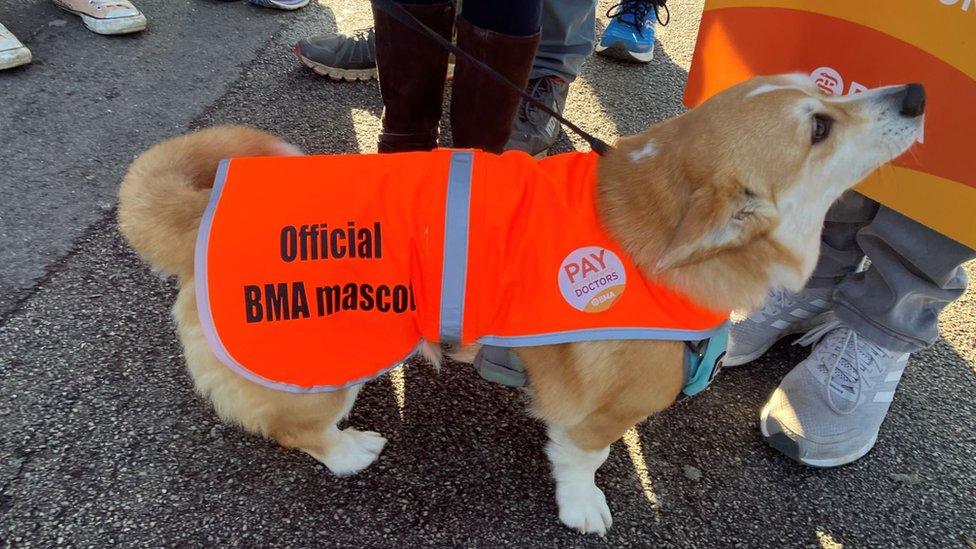
The strike is the second to take place in five weeks
Abbie, a doctor who has been working for three years at Leicester Royal Infirmary, said it was "really difficult" to decide to go on strike.
"In my head there are two things I obviously think about. One is I feel like I have a duty to my patients to provide them care," she said.
"But, I also feel I have a duty to my patients to take a stand because the NHS, as it is right now, is not functioning properly.
"Usually I'm not able to give my patients the standard of care I want to give them.
"The reason we are in that situation is because we are losing so many staff."
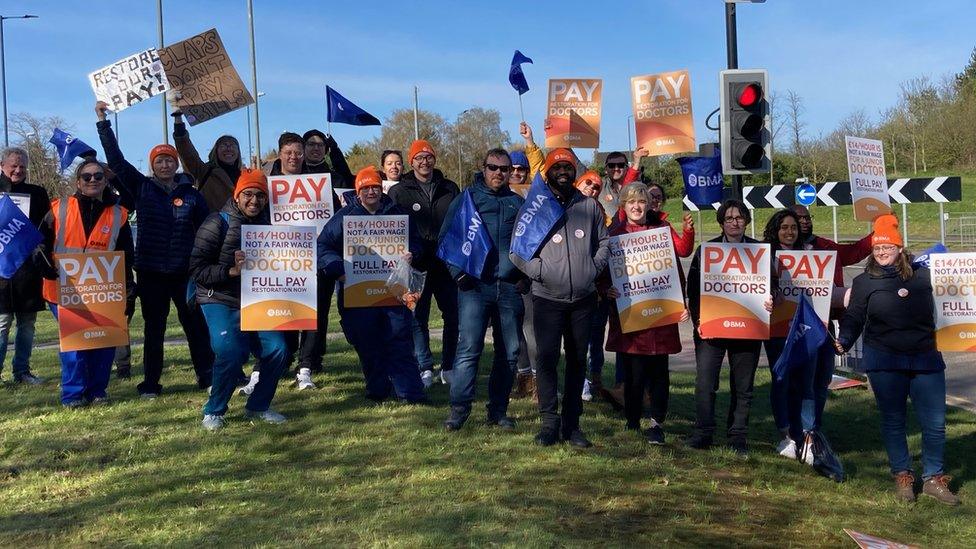
Medics held banners outside the Royal Derby Hospital
Ben, who is in his first year as a doctor, said he was not sure he would be able to finish his two-year training due to working conditions.
"It's difficult when everyday you go to work, you come home and you're absolutely exhausted and you don't feel that there's any way out of it," he said.
"You feel that it's just getting more difficult every single shift and for me, that's been really challenging."
NHS England's medical director Prof Sir Stephen Powis said the junior doctor strikes would cause "significant disruption",
He said the number of cancelled operations and appointments would be "considerably more" than the 175,000 that were cancelled during the 72-hour junior doctor strike in March.
"Routine care will undoubtedly be affected. This will take weeks to recover from," he said.
Mr Powis said the NHS was working hard to protect services like A&E, critical care and maternity services, but explained "those services will be stretched".
He advised the public to use services "wisely" and make use of the 111 phone line, pharmacies and GP surgeries.

Follow BBC East Midlands on Facebook, external, Twitter, external, or Instagram, external. Send your story ideas to eastmidsnews@bbc.co.uk, external.
Related topics
- Published11 April 2023

- Published9 April 2023
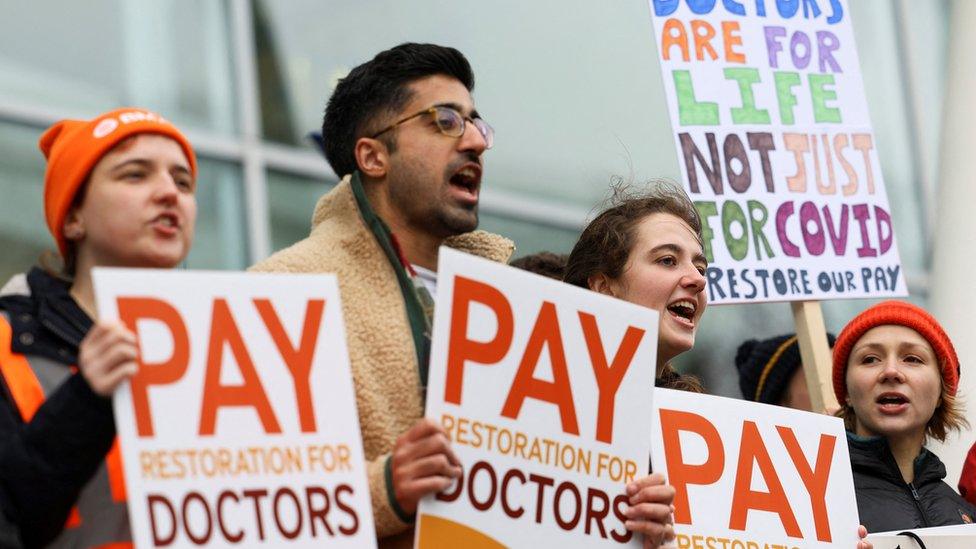
- Published11 April 2023
